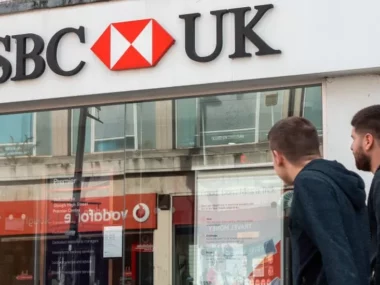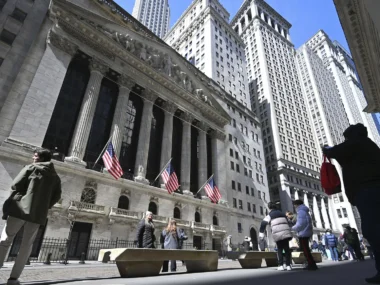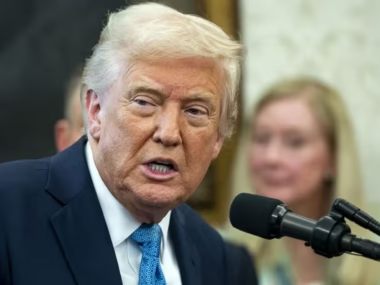Inflation is currently the biggest issue in the economy, frustrating many Americans due to the high cost of living. Although former President Donald Trump claims he can help, 16 Nobel Prize-winning economists believe his plans would not only fail to address inflation but would also worsen the situation.
In a letter reported by Axios and organized by renowned economist Joseph Stiglitz, the economists expressed their serious concerns about the potential economic risks of a second Trump administration. They argued that Trump’s policies could “reignite” inflation, citing his “fiscally irresponsible budgets” and nonpartisan research from institutions like the Peterson Institute, Oxford Economics, and Allianz, which indicate that Trump’s agenda, if implemented, would lead to higher inflation.

Republican presidential candidate and former President Donald Trump delivered a speech at the Road to Majority conference in Washington, DC, on June 22.
According to the Committee for a Responsible Federal Budget, Trump approved $8.4 trillion in new 10-year borrowing during his term, almost double the amount President Joe Biden has so far. Trump plans to extend his 2017 tax cuts, which the Congressional Budget Office estimates would cost nearly $5 trillion, and he recently expressed interest in further reducing the corporate tax rate during a closed-door meeting with CEOs.
However, tax cuts could potentially accelerate the economy at a time when the Federal Reserve is trying to slow it down to combat inflation. In a letter, the economists stated, “The outcome of this election will have economic repercussions for years, and possibly decades, to come. We believe that a second Trump term would have a negative impact on the US’s economic standing in the world and a destabilizing effect on the US’s domestic economy.”
Although the Stiglitz-led letter did not directly address Trump’s trade and immigration policies, some mainstream economists warn that these could also be inflationary. Trump has proposed raising tariffs on China and other trading partners, which Moody’s Analytics predicts would result in job losses and higher inflation. While Trump argues that tariffs would save jobs and penalize China for its trade practices, Biden has maintained most Trump-era tariffs and recently lifted some in a more targeted manner.
There are also concerns among some economists that Trump’s plans for an immigration crackdown and unprecedented deportations could overheat the job market and drive up consumer prices.

A vehicle travels along the U.S. side of the US-Mexico border wall in Nogales, Arizona, on Tuesday, June 25, 2024.
In the letter, the 16 Nobel Prize-winning economists voiced their concerns about the potential risks to the rule of law and stability if Trump were to win the presidency again. They emphasized that economic success is heavily dependent on the rule of law and policy certainty, both of which they believe are threatened by Trump’s unpredictable actions and policies. This instability could harm the US’s global standing.
Signatories of the letter include notable figures such as Robert Shiller, known for predicting the mid-2000s housing bubble, former World Bank chief economist Paul Romer, and George Akerlof, who is married to US Treasury Secretary Janet Yellen.
In contrast, the economists praised President Biden’s economic efforts, highlighting his significant investments in infrastructure, manufacturing, and climate initiatives as measures that will reduce long-term inflationary pressures and support the transition to clean energy. They collectively agreed that Biden’s economic agenda is far superior to Trump’s.
The Trump campaign responded by criticizing the economists and blaming Biden for high inflation. Karoline Leavitt, the Trump campaign’s national press secretary, stated that Americans do not need Nobel laureates to tell them which president benefited them financially. She argued that Americans cannot afford another four years of Bidenomics and that Trump, if reelected, will reinstate his pro-growth, pro-energy, pro-jobs agenda to reduce the cost of living.
Despite the economists’ warnings, polls indicate that voters give Trump higher marks on the economy. According to CNN’s Harry Enten, Trump leads Biden by 18 points on inflation and 13 points on the economy on average. An ABC News/Ipsos poll from May found that over 80% of respondents considered the economy and inflation crucial in their voting decisions, with Trump leading Biden by 14 points on both issues.
Voters have expressed dissatisfaction with Biden’s economic performance, with only 34% approving of his economic policies and even fewer (29%) approving of his handling of inflation according to a late April CNN poll.
However, experts warn of the potential negative consequences of Trump’s policies. Last week, Moody’s Analytics predicted that if Republicans gain power, a combination of higher tariffs, fewer immigrants, and tax cut-fueled stimulus could lead to reaccelerating inflation, unemployment rising above 5%, and a potential recession. Conversely, Moody’s found that if Biden wins and Congress remains divided, the Federal Reserve will likely start cutting interest rates, inflation will normalize, and the US economy will avoid a recession.











